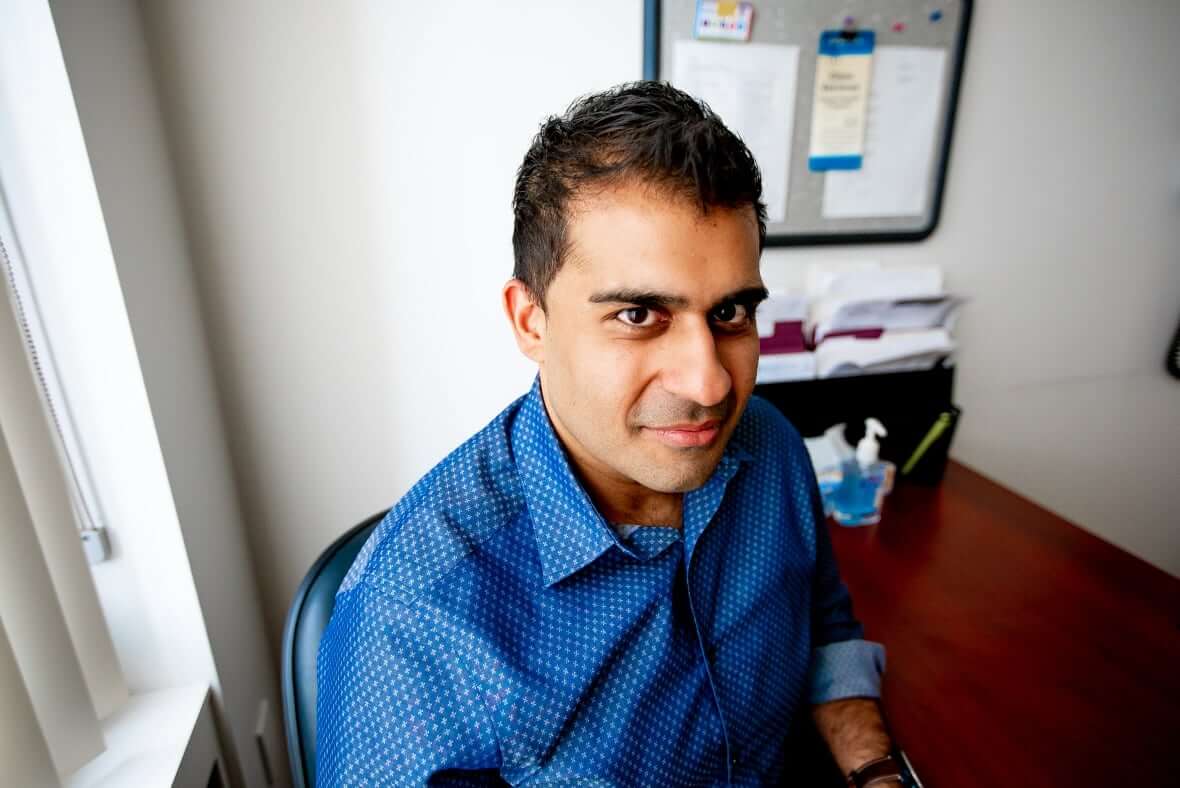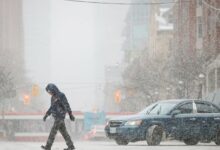Ontario needs new pandemic response strategy as omicron makes inroads: experts

With the omicron variant poised to become Ontario’s dominant COVID-19 strain, experts want the province to explain how it plans to shift its pandemic response if many people are infected much more quickly than in previous waves.
“We obviously have dealt with this for two years, but this is very different,” said Dr. Zain Chagla, an infectious diseases specialist at McMaster University.
“We’re going to see something I don’t think we’ve seen before.”
Ontario announced two weeks ago that it had detected Canada’s first two omicron cases. Since then, the variant has come to represent about 11 per cent of infections, according to the province’s expert pandemic advisory panel, and has begun spreading in local communities.
The province’s top doctor has said he expects omicron will become dominant within weeks. The development comes amid weeks of a steadily rising disease curve, with 1,476 cases reported on Sunday and a seven-day average of 1,236 daily infections, up from 926 a week ago.
Scientists are still probing omicron’s exact characteristics. But based on trends seen in omicron-dominant regions like South Africa, Chagla said Ontario must determine how it will respond if up to 10,000 people are infected each day.
‘It’s going to be tough in the next month or two’
That scenario would strain the current public health approach of tracing and testing the contacts of all infected people, he said, meaning resources would have to be prioritized.
“The way we’ve managed COVID in March of 2020 is going to have to be different when we see such high rates of transmission in our community. I think those discussions need to happen now,” Chagla said.
With so much potential spread, he said it’s also possible that swaths of health workers could be forced to isolate at once, putting essential services at risk. The province should figure out how it will avoid that situation, Chagla said.
“Going into the holidays, all of us — health care and otherwise — want some guidance in terms of how to deal with this so that we’re not scrambling and shutting down services when people need them the most.”

University of Toronto epidemiologist Dr. Jeff Kwong said omicron is hitting Canada at the worst possible time, as health workers contend with burnout and pandemic-weary residents subject to relatively fewer public health restrictions gear up for holiday gatherings.
“I think it’s going to spread really quickly in Ontario,” Kwong said. “It’s going to be tough in the next month or two.”
The potential for rapid spread is concerning for high-risk residents, Kwong said, because the province’s booster shot plan was based on the delta variant being the dominant COVID-19 strain, and those who need boosters the most may be exposed to omicron before they get third doses.
He said it’s not possible to get third shots to everyone before omicron shifts into high gear, but priority should go in the coming weeks to creative solutions for quickly vaccinating the vulnerable and front-line health workers.
People aged 50 and older will be eligible to book third doses starting Monday. Others including people 70 and older, Indigenous adults, front-line health-care workers, long-term care residents and people with certain health conditions are currently eligible for boosters, and the province has said it plans to open third dose bookings to all adults in the new year.
Getting a booster as soon as eligible is one way individuals can mitigate COVID risk, Kwong said, along with minimizing social indoor gatherings and prioritizing good ventilation. He said tighter capacity rules and stronger enforcement of mask policies could also help from the government side.
Chagla said preparations for major omicron spread should happen regardless of other policy decisions.
“It’s going to spread through our population one way or another,” he said. “We just have to prepare.”
A spokesperson for the Health Ministry said Ontario is “prepared and ready to respond to the omicron variant,” with plans to make tests more widely available and hire more staff for hospitals and case management.








Redes Sociais - Comentários